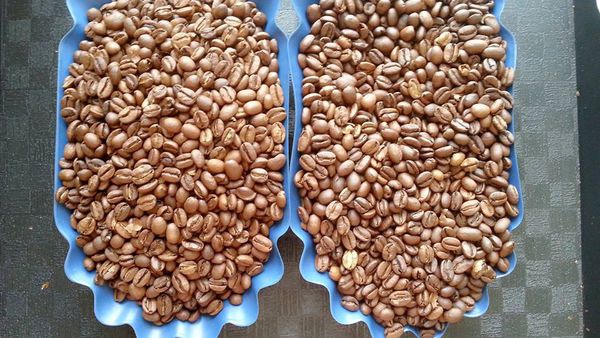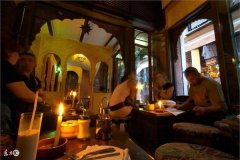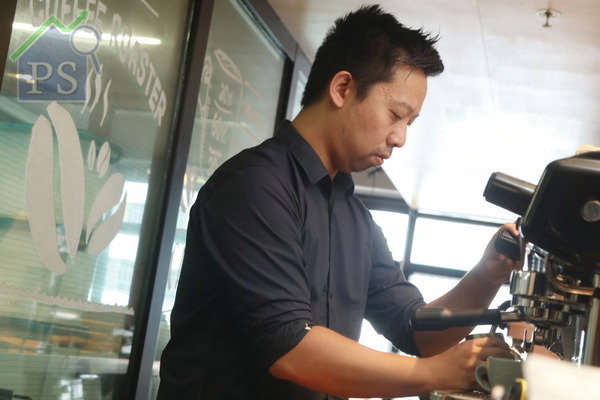"own baking" cost analysis-a genuine store, the value is more precious than the price.

For professional baristas, please follow the coffee workshop (Wechat official account cafe_style)
This thing about coffee beans
As we walk along the road, we may see different introductions as follows:
A store sells "Yega Xuefei", which costs NT.300/ 450g.
Store B sells "Sun Yega" for NT.500/ half a pound 225g.
Shop C sells "Solar Yega Cochel G1", which costs NT.800/ half a pound 225g.
Ding Dian sells "Ethiopia" for NT.1200/ half a pound 225g
What are these differences?
?
There is a good way to help these coffee bean products.
It means "not by the information of the store, but by the country of origin."
How to distinguish between countries of origin?
You can find it on the Internet on google.
What is Ethiopia?
What is Yega Xuefei?
What is the sun?
What is Cochel?
What is G1?
When in doubt, check out google for more introductions.
When you think you have enough information, go back and confirm which store provides more pragmatic information.
Instead of trusting the information provided by the store.
The information on the shelf is provided by the store, so you can provide it as much as you want.
If I say you can lose weight, you can lose weight. Maybe some people believe me when I say I can cure a cold.
On the other hand, in the uneven product information, consumers will give rise to the situation of "those who believe always believe and those who do not believe".
In the end, as a result, how correct or novel the information provided by the store is, some people will think, "this is a lie. The idea taught by my teacher is king!"
……
If we don't know much about the origin, we may fall into another situation when we buy coffee beans.
It is: "the shop C is really a black shop, half a pound NT.800?" Similarly, Yejia Xuefei, I saw it in the second shop before NT.500. "
Well, I look at it from the perspective of a self-baking shop.
There are twenty kinds of Yejia Xuefei that I can stock.
The cheapest is 200 raw beans per kilogram.
The most expensive one is 1600 per kilogram.
The price difference of different items can reach NT.1400 Yega Xuefei, can only sell NT.300~500?
No way, this is the difference between the floating price and the supply.
With the control of the floating price, the store needs to decide whether or not to buy beans in many ways.
The supply difference is judged by the information provided by the store.
But the standard of judgment still needs to be laboriously tried by consumers to determine this price OK is not OK.
Is there a Yega Xuefei who buys NT.200 per kilogram and ends up selling you half a pound of NT.1000/?
It is possible, how to judge which store is in such a state of mind? I don't know either.
…… Actually, if you ask me,
I can't think of anything other than "buy it once".
Therefore, Hua Dou coffee provides a tasting service.
If you see the coffee you want to drink in my bean list, or visit our store for the first time.
You can let me know first, and I'll try it for you by mail, filter and bean list in my own way.
There is a "through Coffee" in Hsinchu that also provides tasting service in the store.
I think the matter of "drinking" should be the most direct solution for customers to judge whether OK is OK or not.
……
So in the end, why is there such a big price difference for coffee beans?
Source of goods, floating price.
These reasons have been introduced above.
The loss rate and labor in the baking process.
This is the work of each of our self-baking shops. Let's give an example.
Suppose I enter a "Meso gold brick", NT.300 per kilogram, into five kilograms, a total of NT.1500.
After the purchase of 5kg, about 10% of the defective beans are picked first, that is, 4500g of 5kg is left.
Then someone placed an order of half a pound 225g, and I baked 300g of raw beans. After dehydration, I came out of the pot with 250g and 16.7% moisture content.
Pick the beans again after baking. This Maisuojin brick has a lot of shell beans, as a result, 30g is picked out, and the defect rate after drying is 12%, leaving 220g, less than 5g.
……
How to deal with the follow-up difference of 5g? I won't introduce you.
How much weight did your beans lose due to picking beans and moisture content between the time when raw beans were purchased and when they were finally ready for shipment?
These weights are the cost of the first step.
Then, the matter of picking beans is a completely unbeneficial thing in the calculation of "weight loss, higher material cost, and higher time cost".
But for a "taste clean", it must be done.
So, how much labor does it take to pick up beans before and after baking? This is the cost of the second step.
The beans are ready. Nothing else counts.
Do you think the direct cost of this "Macintosh" can still be as simple as "NT.300*0.225=67.5 per kilogram"?
……
When I first started baking beans, every time I finished a plate of clean beans, I would want to frame it.
But now, I think every self-baking shop that offers good coffee only expects guests to drink their own painstaking efforts.
I believe in a real store.
The value provided is often more precious than the price.
Important Notice :
前街咖啡 FrontStreet Coffee has moved to new addredd:
FrontStreet Coffee Address: 315,Donghua East Road,GuangZhou
Tel:020 38364473
- Prev

How to open a new store and get a large number of customers without spending a penny to sell what you want to sell?
The exchange of professional baristas Please follow the Coffee Workshop (official Wechat account cafe_style) A man has opened a coffee shop and has invested a lot of money, but the funds are no longer enough, and these days he still needs to buy vases, murals, etc., which costs a lot of money, and a vase costs about 1000 yuan. What he needs most now is money, and he will think of a square in the next few days.
- Next

Coffee Man Story | from wholesale to retail Peter: "Let people know what good coffee is! "
Professional baristas please follow the coffee workshop (Wechat official account cafe_style) since Peter Luo Kuangcheng, who lives in Melbourne, Australia, has fallen in love with coffee due to the influence of the local coffee culture. With his part-time experience in an Australian coffee shop, he returned to Hong Kong in 2008 to set up a workshop specializing in coffee bean wholesale and acting as a consultant to advise clients and assist them.
Related
- What documents do you need to go through to open a coffee shop? coffee shop coffee shop certificate processing process
- How to purchase Coffee beans in small Cafe how to choose a suitable supplier for domestic Coffee supply Company
- How to drink Starbucks Fragrance White Coffee? how to make Australian White Coffee? what Italian coffee beans are recommended?
- The Story of Flora Coffee: the name of Flora Coffee Bean and the implication of the Flowers on Florna Coffee
- How much does a cup of coffee cost? How much is the profit of a cup of coffee? What is the profit of the coffee shop in a year?
- Yunnan small Coffee, known as "fragrant Coffee", introduces the characteristics of Alpine Arabica Coffee producing areas in Yunnan, China
- 2023 latest Starbucks full menu price list how much is a cup of Starbucks coffee what is better to drink the most popular hot and cold drinks recommended
- Starbucks different kinds of Coffee Price list Starbucks menu 2023 Top Ten Best drinks in Starbucks
- Starbucks Spring praise Comprehensive matching Coffee Bean theme Story Packaging implication and taste description
- The cost of a cup of coffee latte American coffee cost price and selling price

